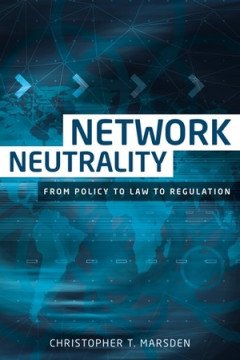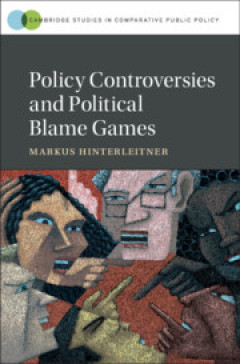Ditapis dengan

Network neutrality:from policy to law to regulation
"This study explains the concept of network neutrality and its history as an extension of the rights and duties of common carriers, as well as its policy history as examined in US and European regulatory proceedings from 1999. The book compares national and regional legislation and regulation of net neutrality from an interdisciplinary and international perspective. It also examines the future …
- Edisi
- -
- ISBN/ISSN
- 9781526105479
- Deskripsi Fisik
- 304 p.; 22 cm.
- Judul Seri
- -
- No. Panggil
- 340 CHR n

Adult education policy and the European Union :theoretical and methodological…
The European Union is now a key player in making lifelong learning and adult education policy: this is the first book to explore a range of theoretical and methodological perspectives researchers can use to investigate its role. Chapters by leading experts and younger scholars from across Europe and beyond cover the evolution of EU policies, the role of policy ‘actors’ in what is often seen…
- Edisi
- -
- ISBN/ISSN
- 9789462095472
- Deskripsi Fisik
- xiii, 179p. : ill.
- Judul Seri
- -
- No. Panggil
- 374.924 ADU a

Public Policy:Why ethics matters
Ethics is a vigorously contested field. There are many competing moral frameworks, and different views about how normative considerations should inform the art and craft of governmental policy making. What is not in dispute, however, is that ethics matters. The ethical framework adopted by policy analysts and decision makers not only shapes how policy problems are defined, framed and analysed, …
- Edisi
- -
- ISBN/ISSN
- 9781921666759
- Deskripsi Fisik
- -
- Judul Seri
- -
- No. Panggil
- 170 BOS p

Policy controversies and political blame games
In modern, policy-heavy democracies, blame games about policy controversies are commonplace. Despite their ubiquity, blame games are notoriously difficult to study. This book elevates them to the place they deserve in the study of politics and public policy. Blame games are microcosms of conflictual politics that yield unique insights into democracies under pressure. Based on an original framew…
- Edisi
- -
- ISBN/ISSN
- 9781108860116
- Deskripsi Fisik
- xiv, 264 p. ; ill
- Judul Seri
- -
- No. Panggil
- 306.2091821 HIN p

Harnessing Public Research for Innovation in the 21st Century :An Internation…
Universities and public research institutes play a key role in enabling the application of scientific breakthroughs and innovations in the marketplace. Many countries – developed and developing alike – have implemented national strategies to support the application or commercialization of knowledge produced by public research organizations. Universities and public research institutes have i…
- Edisi
- -
- ISBN/ISSN
- 9781108904230
- Deskripsi Fisik
- xxxv, 544 p ; ill
- Judul Seri
- -
- No. Panggil
- 338.926 HER A
 Karya Umum
Karya Umum  Filsafat
Filsafat  Agama
Agama  Ilmu-ilmu Sosial
Ilmu-ilmu Sosial  Bahasa
Bahasa  Ilmu-ilmu Murni
Ilmu-ilmu Murni  Ilmu-ilmu Terapan
Ilmu-ilmu Terapan  Kesenian, Hiburan, dan Olahraga
Kesenian, Hiburan, dan Olahraga  Kesusastraan
Kesusastraan  Geografi dan Sejarah
Geografi dan Sejarah